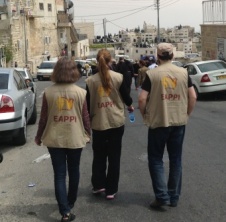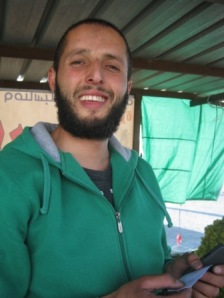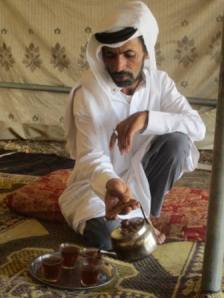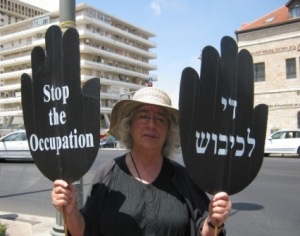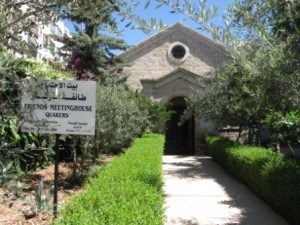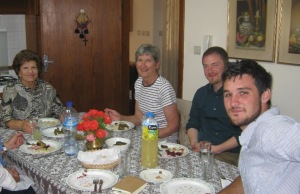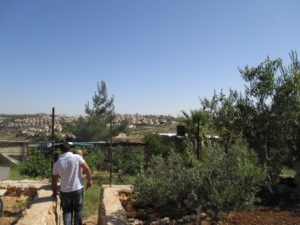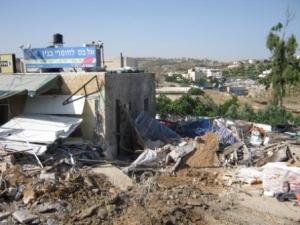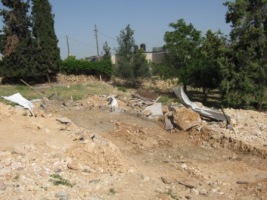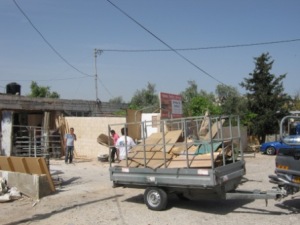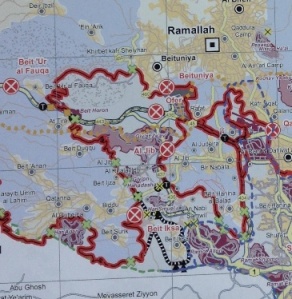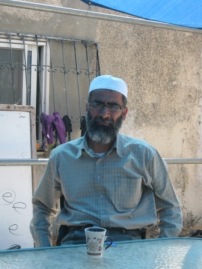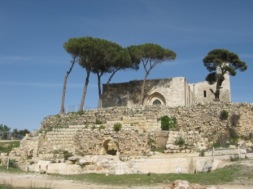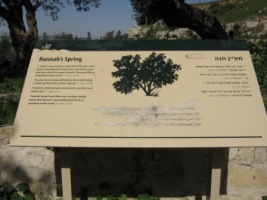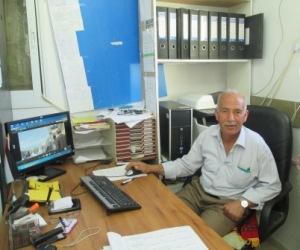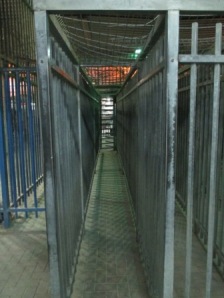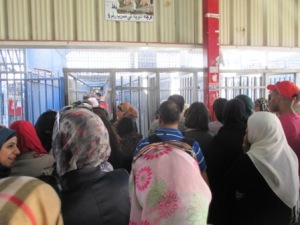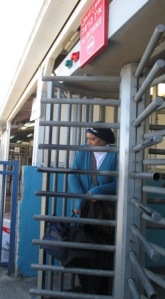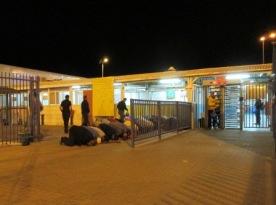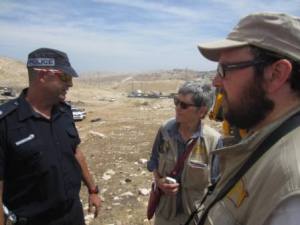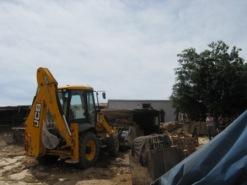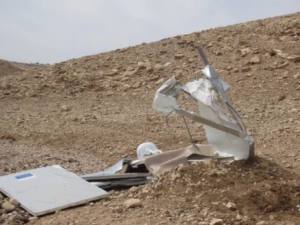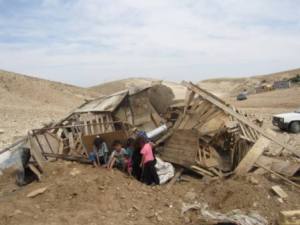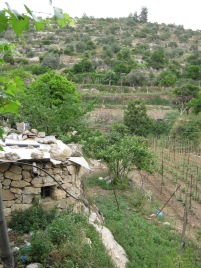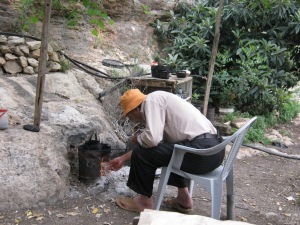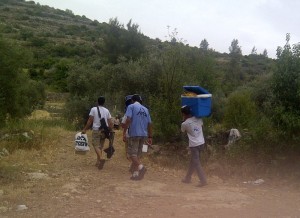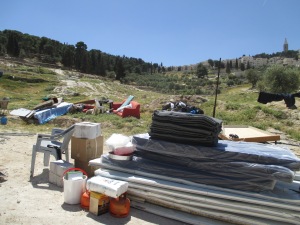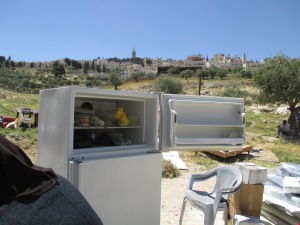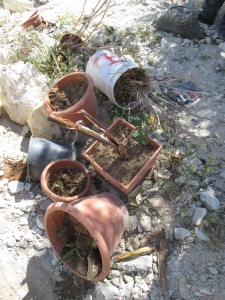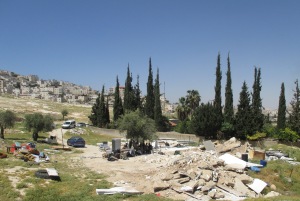Behind the stories I have tried to tell over the past few weeks are an amazing people. Amazing, because I think most of us in our comfortable lives would scream with frustration or weep with fury if we had to endure some of the trials, challenges and tragedies which Palestinians face on a daily basis.
Before I leave, I want to give you just a taste of some of the delightful chance conversations I have had – just because of friendliness, curiosity and the desire to help:
Walking up the steps towards our house in Al Ram I met two smartly-dressed schoolgirls, about 14 or 15 years old. They smiled and greeted me in English. I asked how their exams were going (it was mid morning and I realised they were on study leave.) “Well.” answered the older one. “We have been studying hard.” I complimented her on her English. “Thank you!” she exclaimed. “And I speak Spanish too! Welcome to our country!”
A few moments later, on my way out again, a young mother trying to manouvre her two small children down the same uneven steps called out to ask if she could help me. “Do you know where you are going?” she asked. I thanked her and said that I did. “You are welcome,” she smiled as she boarded a “service” taxi with the children.
And on another occasion, wearing my EAPPI jacket, a gentleman sat down on the bus beside me and beamed at me. “EAPPI!” he exclaimed. “You are welcome – most welcome!” (He knew us from his days working at the Capitol Hotel in Jerusalem, where EAs stay during their induction period). We talked all the way to Jerusalem, and he told me of his attempts to find another country for himself and his family – four children aged between 11 and 20. “It is so difficult here,” he said. “I fear for them all the time. Every time they go out I wonder where they are and whether they will come back safely.” It is sad to hear of Palestinians seeking to leave the country they love – but totally understandable.
And Abdullah: Abdullah and his family have a fruit stall situated at the first roundabout on the West Bank side of Qalandiya checkpoint. It is the dustiest, most polluted site you could imagine, with constant queues of traffic, often stationary, in both directions at most times of day. And to my shame we EAs have walked past it tens of times in the past few weeks on our way to and from the checkpoint without buying anything.
But the other day Abdullah called to us as we passed on our way home from Jerusalem. “Can I ask you a question?” he asked in perfect English. “I see you passing every day. Who are you? Are you working here?” We explain a little about EAPPI and what we do and give him a leaflet, apologising that we only have an English version on us. He seems unperturbed. “What do you think of us Palestinians?” he asks. I think of the welcomes I have received, the cups of tea and coffee I have drunk, on one occasion offered by people who had only hours before had their business premises demolished without warning; of the elderly Palestinian gentleman in Ramallah who took my visiting husband by the shoulders and planted a gentle kiss on both cheeks. “Welcome, welcome!”, he had said. I tell Abdullah that I have found Palestinians to be polite, helpful, and very, very hospitable. “You don’t think we are all terrorists then?” he said. I smile and shake my head.. “You are most welcome here in Palestine” he tells us, and we part carrying a gift of ripe plums from his baby daughter, Miriam, his first-born. I resolve to buy fruit from him in future.
I have met many inspiring and welcoming Israelis in the past three months too, including Roni, whom I wrote about in my last piece. We also experienced generous hospitality from the Israelis in Haifa who welcomed us into their homes. The quieter voice of welcome is there too. Standing at the Women in Black vigil on a noisy roundabout in West Jerusalem holding my “Stop the Occupation” placard, a young Israeli woman squeezed past me with her shopping trolley. “Do you guys have enough water and stuff?” she asked me. I smiled and thanked her. Not all the passers-by were so friendly.
But I want to end, as I started, with Palestinian hospitality. There is a humorous passage by American journalist Tony Horwitz, in which he refers to Palestinians “saying ‘welcome, most welcome’ and drowning each other in tea until the end of time.” It is a true picture of Palestinian hospitality which I shall carry home with me.

